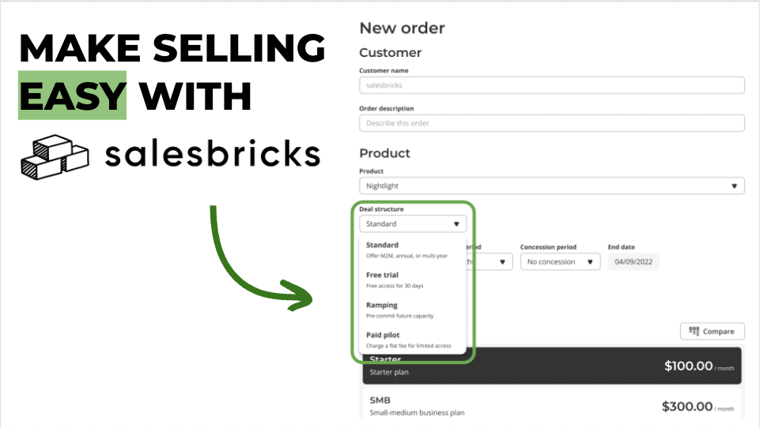Whether your company is built to offer free trials, or you take a more traditional approach to selling, founders should be mindful of ways the buyer wants to buy in 2022.
salesbricks is on a mission to help companies become easier to buy from. In our new Masterclass RevOps series, our founder, Jon Festejo, provides insights on contracts, detailing how you can set both the customer AND their supporting procurement or finance teams up for an easy transaction.
Before sharing Jon's video, lets dive into 3 of the top mistakes every founder should avoid of when creating sales contracts:
#1 THINKING THE BUYER IS THE SIGNER
Founders need to know that the buyer is not the signer! It needs to be super easy for the buyer to review the terms, the pricing, and then be able to pass that over to a team that's focused on the actual purchase. That might be a procurement team or a legal team, or somebody specifically in finance that is going to actually sign the contract. Making that contract easy to deal with for two or three departments within that organization is VITAL.
What helps?
Spoon feeding your buyer! You need clear pricing and packaging, as well as clear terms and conditions, that align to their organization. Making it easy to digest for procurement, legal, or finance teams — that's what can help save you days of back and forth.
#2 ONE-SIZE FITS ALL
You can’t just use boilerplate terms and conditions for every deal. When you sell upmarket, buyers have very tailored asks like late start dates, 18-month deals, pilots that convert to paid plans through mutual agreement, opt-out clauses, etc. If you're not able to customize the contract to your buyer's liking, the deal will likely flatline.
What helps?
Specific language in the contracts. Make the who/what/when/where/why/how as clear as possible. Tons of founders don’t get off the runway when they realize this too late.
#3 ASSUMING STRIPE HANDLES ALL OF THIS
Stripe is the best solution for simple license-based billing. It does the best job of processing the payment, but when it comes to structuring a deal with a more complex buyer, it runs into some problems. Tier-based, volume-based pricing, recurring sales discounts, one-time discounts that don’t recur at the time of upsell or renewal. These are enterprise concepts that Stripe simply does not support.
What helps?
salesbricks. It sits on top of Stripe, and is built for founders to not have to write any code. It's an interface that makes it really easy to design pricing and packaging and set up revenue infrastructure for your product.
WHY IS THIS IMPORTANT IN 2022?
It's vital for founders to sell their product in whichever way a buyer wants to buy it. Founders need to consider every at least 3 tiers of revenue infrastructure that allows you to take a dollar from a customer.
BONUS: THE 3 TIERS YOU SHOULD BE PREPARED TO OFFER YOUR BUYERS
- Self-service: Your buyer knows how to solve their pain, and you’re going to give it to them.
- Sales-assist: Your buyer sort of knows how to solve their pain, and you’re going to help them figure it out.
- Top-down sales motion: Your buyer knows there’s a pain but deals with it, you’re going to help them relieve it!
Now that you're aware of these common mistakes, check out Jon Festejo's bite-size masterclass on contracts — P.S. There are new episodes of this series every week on our Youtube channel!
About salesbricks
salesbricks is one of 15 companies participating in the 2022 Stage 2 Capital Accelerator. Co-Founded by Jon Festejo, and John Louis Swaine, salesbricks is a modern eCommerce platform that helps startup founders set-up revenue infrastructure in minutes, not months.

